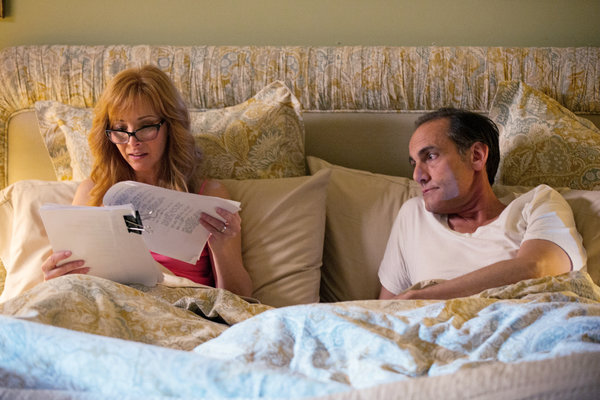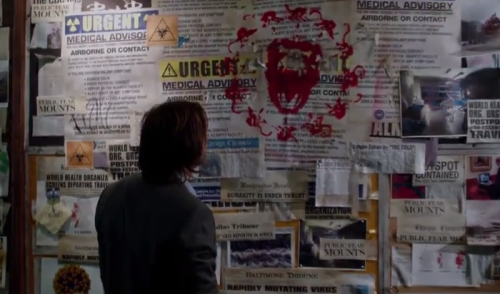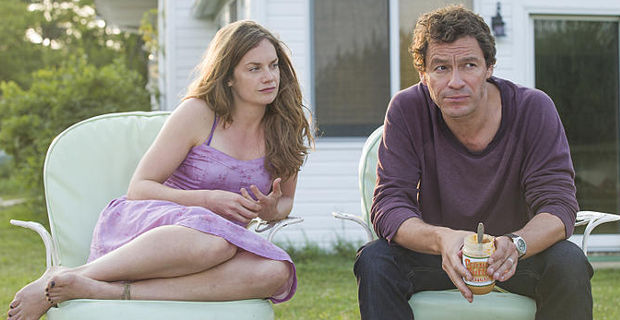Top 20 TV Shows of 2013: Cloned Child Zombie Political Gangsters (10-1)
by December 21, 2013 12:44 am 948 views1
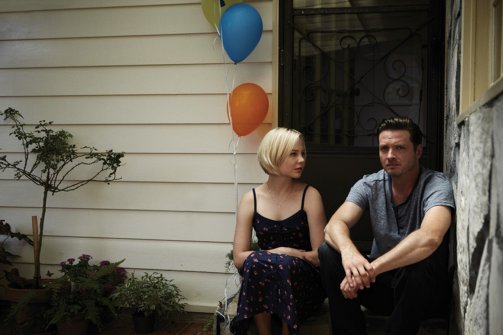
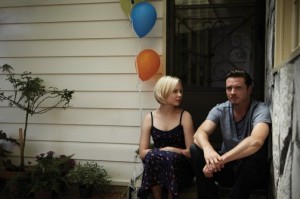 And here we have it – my top 10 shows of 2013.
And here we have it – my top 10 shows of 2013.
Culled from the hours and hours (and hours and hours and…) of television that I watched this calendar year, these 10 shows stood just a hair above the rest for various reasons – some had undeniably powerful performances; others managed to be incredibly successful at gelling seemingly disparate elements into a cohesive storyline; and they all produced some type of passionate response in me. The reason that people who write about television do what they do is for that moment when a show connects and engages with you in some way, taking you away from a stressful day with its humor, building up a story only to emotionally devastate you, or impressing with its risk-taking and creative veracity. And these ten shows absolutely fit that bill, moreso than anything else that I watched this year.
As with the previous article, included here are last year’s positions (if applicable), episodes that are either good jumping in points or strong examples of what the show is capable of, and various clips and trailers meant to give a brief introduction to the shows that are being written about.
10. Sleepy Hollow
Essential Episodes: “The Midnight Ride”; “Necromancer”‘; “The Golem”
A series about a resurrected Ichabod Crane waking up in Sleepy Hollow 250 years after doing battle with the Headless Horseman should not have worked. It’s the type of idea that is too wild for network television and has such a narrow tightrope that the auspices behind it have to walk in order to keep it from becoming muddled or overly silly. However, those behind Sleepy Hollow have managed to create a show with a brilliant sense of self-awareness, an ability to shift between tones effortlessly, an increasingly intriguing mythology that is both taken seriously and poked fun at in the show’s universe, and one of the best pairings on television in Tom Mison and Nicole Beharie, whose chemistry subverts expectations of a will they/won’t they and allows a genuine friendship between two unexpectedly linked spirits to develop. Sleepy Hollow could very easily fall apart in the coming seasons with the weight of its own mythology baring down on it, but for now, it’s the most pleasant surprise and one of my favorite shows of 2013.
9. Moone Boy
Essential Episodes: “Men of the Houses”; “Another Prick in the Wall”; “Godfellas”
British import Moone Boy is one of a slew of original series that premiered on Hulu in 2013 as the streaming service tried to compete with Netflix through acquiring content and producing its own half-hour originals. Created by Chris O’Dowd, Moone Boy tells the story of Martin Moone, a 12-year-old growing up in Ireland in the 1980s who interacts with his imaginary friend Sean Murphy, but the series isn’t a bunch of nostalgic references bundled around a thin plot, nor does it talk down to Martin for still having an imaginary friend at his age. Instead, it’s a tender, warm-hearted look at a somewhat lonely (yet impressively optimistic) little boy trying to figure life out, grounded by David Rawle’s honest portrayal of Martin, a perfectly imperfect family surrounding the protagonist, and the comfortable chemistry between Martin and Sean, whose dynamic is part buddy cop movie, part best friends, and part mentor/mentee.
8. Orphan Black
Essential Episodes: “Instinct”; “Effects of External Conditions”; “Unconscious Selection”
What would you do if you watched yourself get killed? That’s what Sarah was forced to deal with when she watched Detective Elizabeth Childs land in front of a moving train. Soon enough, she discovers that the two are clones and that there are several others like them out there, although not all of them have the best of intentions. With the help of grad student Cosima and soccer mom Alison, Sarah must dig deeper into her past to find out the truth behind her birth and protect her own daughter in the process. The first season of Orphan Black was a quickly paced thrill ride packed with sharp twists, real world implications, and more depth that one might have expected, the type of show that could have easily went spinning out of control if it wasn’t for its dynamic lead performance. Often acting against herself, Maslany embodied the specificity of each character she created to the point where you would forget there were three of her on screen at once, her intricate understanding of the show’s universe able to provide the type of balance that a show in this genre needs in order to sustain itself for the long haul.
7. In the Flesh
Essential Episodes: “Episode 1”; “Episode 2”; “Episode 3”
Genre television isn’t shy about using the experiences of minorities as allegory for the experiences of supernatural creatures in a human world, but none have used it as effectively and emotionally as BBC America series In the Flesh. Taking place after the conclusion of a zombie apocalypse and focusing on the reintroduction of the surviving undead back into society, the series brought a sensitive, thoughtful touch to such a well-worn topic, less concerned with gratuitous violence and elaborate set pieces than with distinctly beautiful cinematography and an affecting main character struggling to reconnect with the family he left behind and the town he unknowingly terrorized. It’s a series that walks the line on gray morality and shows how much pain can impact one’s life long after tragedy, but above all else, In the Flesh centers on humanity – rediscovering it (protagonist Kieran); rejecting it (Kieran’s friend Amy); the beauty of it (Kieran’s relationship with Rick); and the tragedy of it (the town becoming riled up about the undead still living among them).
6. Rectify
Essential Episodes: “Always There”; “Plato’s Cave”; “Drip, Drip”
Poetic and soulful, Rectify is a crime drama without the crime, a glimpse at a man 20 years removed from living in society after being on death row for a crime he claims he didn’t commit. The series, a deliberately paced meditation on small town paranoia and man’s ability to adapt through trying circumstances and relate to his fellow man, puts more of an emphasis on the smaller moments that most people take for granted – the feel of grass, dust floating in the morning sunlight, riding in a car with the windows down – much to its benefit. Aden Young gives a haunted, sad-eyed lead performance that paints Daniel as a man drowning in a sea of modernity and complex emotional issues that haven’t even begun to be addressed. After being locked up for over half his life, Daniel has, in a sense, been reborn into a world he doesn’t understand and a time where he had a proverbial scarlet letter singed onto his chest, the latter of which he has no idea how to get rid of.
5. Veep (Last Year: 8)
Essential Episodes: “The Vic Allen Dinner”; “Helsinki”; “Running”
As bawdily vulgar and verbally dexterous as ever, complete with a multi-faceted performance by Julia Louis-Dreyfus who makes her character as acidic and vicious as she is vulnerable and self-sabotaging, the second season of Veep upped the stakes in terms of plotting and, well, stakes by giving beleaguered Vice President Selina Meyer tangible opponents with whom to spar. While the first season of the show was no slouch and could be seen as a representation of life for female politicians, always having to fight in order to be heard and feeling as if they were undervalued in a male-dominated industry, it lacked a certain specificity that season two possessed. Selina not only had people to fight against, she had tangible goals, as the raucous final few episodes of the season found her fed up with her job, contemplating stepping down from the ticket, and ultimately deciding to make a presidential run herself. It was a season that found Veep hitting its stride with smartly observant political content and a supporting cast who only grew in prominence and importance the lower Selina sank.
4. Spartacus (Last Year: 2)
Essential Episodes: “Blood Brothers”; “Separate Paths”; “Victory”
The first few episodes of Spartacus: War of the Damned were a bit worrisome, as the show’s bleakness threatened to overtake it when the rebels split into two factions that butted heads against one another rather than working toward the same cause. Characters who were previously series highlights became nagging dead weight and the show lost the kernel of fun that it always kept amid its rising body count and operatic political maneuvering; however, once the season got its legs underneath it, it became the show it always was, only with darker edges and the weathered quality of experience informing its storytelling. The series charged toward a series climax packed with emotional power during its last few episodes and alternated between breathlessly action-packed fight scenes and tense strategizing in both the rebel and Roman camps, as the Romans had to extinguish the fight of Spartacus and his ever-growing band of soldiers the only way they could.
3. Boardwalk Empire (Last Year: 6)
Essential Episodes: “Erlkonig”; “Havre de Grace”; “Farewell Daddy Blues”
Every season, Boardwalk Empire employs a slow burn to its storytelling, opting to start things off with its many disparate pieces scattered through the Prohibition-era East Coast and gradually bring separate storylines crashing into one another for a marvelous crescendo. It doesn’t necessarily win it a lot of casual fans or media coverage in the age of the episodic recap/review, but it makes for an intriguingly novelistic approach to television, which season four utilized once again to great effect. But the structure was only one of the many positives of the fourth season of the period drama, which got closer to figuring out what to do with self-loathing main character Nucky Thompson, shifted the focus toward Northside gangster Chalky White in a story all about the evils of power/notoriety, and saw former agent Nelson Van Alden go full gangster after having all he could stand of his new life. Ending its season on arguably the most devastating imagery of the series, Boardwalk Empire is a show that doesn’t let its characters off easy and knows the value of endings, consequences, and when to take the shot.
http://www.youtube.com/watch?v=zBm9GZWo1Vg
2. The Returned
Essential Episodes: “Camille”; “Lucy”; “Adele”
Gorgeously atmospheric and intensely stomach churning, The Returned is a quietly meditative twist to zombie mythology and the fantasy genre as a whole. The story of a small French village who must deal with several thought-deceased loved ones coming back with no knowledge of their death, the series was both a subtly unsettling genre series and a portrait of a disrupted grieving process, about years of grief taking shape and staring you right in the face after it was long thought dead. Rather than big action sequences or random acts of violence, the show thought small to its benefit, making several minute decisions (mostly based on timing and how much information to give away when) whose visual and emotional impact made for a compelling watch. The United States doesn’t yet get a lot of non-British international television, but the way that The Returned was embraced by audiences and critics alike makes the chances of another sterling production like this getting a chance to expand its audience all the greater.
1. Enlightened
Essential Episodes: “Higher Power”; “All I Ever Wanted”; “Agent of Change”
All Amy Jellicoe wanted to do was better the world around her. Following a nervous breakdown and a stint in rehab, the corporate executive became conscious of the effect of her actions at work and began trying to fight against the negative impact her company had on the environment in Enlightened, the misunderstood HBO dramedy that was my favorite show of the last calendar year. More obviously structured than the first season, though still with stunning ancillary character-focused standalone episodes, season two of Enlightened found Amy working with IT friend Tyler on gathering evidence to use against their company and get them to change the way they do business, all the while still chronicling her struggles with moving on after her breakdown and her delusions of how her life would turn out vs. where she actually was in her investigation. It was a season whose core was about people trying to connect and be heard by one another, a type of loneliness in storytelling that humanized a prickly protagonist and made (most of) her actions deeply sympathetic. It was a season concerned with man’s ability to change patterns deeply entrenched in his own psyche and how society tends to encourage both apathy and social/personal inertia in those who have given themselves over to the machine. It was a season where Laura Dern gave the greatest performance on television by not shying away from Amy’s faults and embrace what made her imperfect, obnoxious, caring, sad, guarded, well-meaning, and, overall, good. And it was a beautiful season, indeed.
http://www.youtube.com/watch?v=TkZ3D9C44s8
Final Top 20 Network Count:
HBO: 3
Showtime: 3
FX: 3
Sundance: 2
FOX: 2
BBC America: 2
Starz: 1
Hulu: 1
ABC: 1
History: 1
The CW: 1
